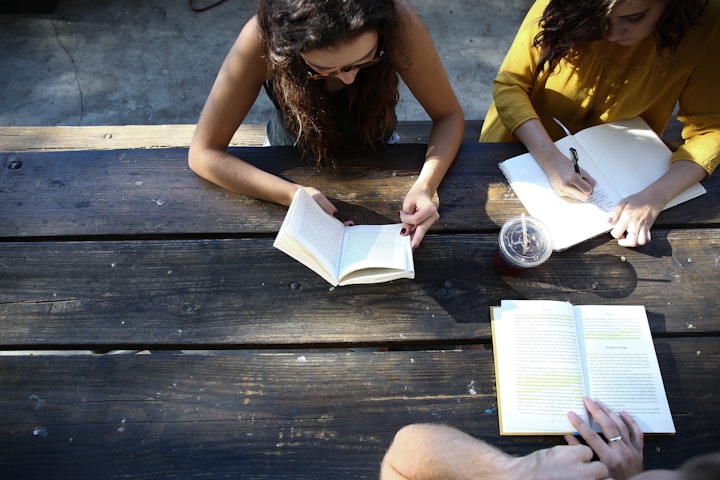Study Skills & Test-Taking Strategies
Understanding how your memory works & crucial study skills and test-taking strategies by Zoe Frenchman

How does our memory work?
Our brains are built to forget, and that’s why it’s important to effectively remember and study important ideas. Understanding your memory is helpful to get started with effective studying. Remembering things starts with sensory input, then goes to short term memory, then goes to a rehearsal path, which involves practicing, then develops into long term memory. This entire process creates a retrieval path. The rehearsal paths involve making the ideas active and creating triggers. It’s crucial to make ideas active and create triggers for long term memory.

Study tips for student success
Effective reading, active studying, and note-taking will improve learning and memory. Favorite song lyrics, movie quotes, book lines, and riding a bicycle are things that people remember by heart based on having made those ideas active and having created triggers. Making ideas active and creating triggers will allow you to learn, grow, and remember these ideas. Mnemonic devices are helpful in order to remember things. Acronyms, acrostics, musics, rhythm, rhymes, stories, associations, visualizations/pictures, and chunking are all different mnemonic devices that, in conjunction with rehearsing them, aid in remembering, and therefore, studying. Choose the best option for you.
It’s also a good idea to choose an appropriate environment to study in. You want to be comfortable, without being too comfortable. If you can, keep it a little chilly in the room to keep you alert. Most importantly, make sure you aren’t surrounded by distractions.

Use your resources
There are a number of great websites to use as studying resources. www.flashcardmachine.com is a great resource for studying, for example. Study groups are also great, social ways to study actively.
Writing a song or putting information to a beat, making games, making podcasts, writing flowcharts, writing formal outlines, typing, flashcards, drawing concept maps or doodles, or replacing text with pictures are all ways to remember things actively. Each individual person’s learning style will affect what works for them.
Making podcasts is a truly effective way to actively remember things you’re studying. Putting ideas and concepts into your own words, including background music, being able to download and take it anywhere, and being able to listen to your podcast a few times will make the information active and easier to comprehend.

Purpose, motivation, & communication
Additionally, identifying a purpose of studying the material will truly allow the information to process more than studying aimlessly, or without motivation. Identify what you’re trying to understand from studying the material.
Tutors, classmates, course directors, lab specialists, the student success department, and other staff are great resources if you’re struggling. Communicating with classmates about class work and schedules is extremely beneficial. Furthermore, communicating with course directors/professors for feedback, suggestions, or aid in classwork can be advantageous, as they want to help their students. Every school has departments, whether it’s a counseling department, or an academic advisory department, or whatever you resource you specifically need to achieve your goals and be successful. It cannot be stressed enough to use those resources! There is a variety of resources and tips available to utilize and implement in your routine in order to study and remember things effectively and long-term. It’s your job to actively engage with these resources, tools, and strategies.

Last words
Maintain balance, give yourself credit, push yourself creatively without forcing anything, and do not procrastinate—it only creates more problems! Remember to put yourself, your health, and your happiness first and foremost. Like I said, maintain balance between school, work, life, and whatever else you personally have going on. It seems like a simple concept, as it’s definitely much easier said than done, but it’s essential to remind yourself of it and to actively work towards achieving it. Check out my last story about test/academic anxiety and how to handle it for more like this!
More from the author:
folklore by taylor swift: a review
Violet Clouds & Delicate Whispers
1/3 - Breaking Down Taylor Swift's Discography and Its Impact
About the Creator
zoe frenchman
I’m Zoe, I’m 21, and I’m an aspiring writer, filmmaker, musician, & mental health advocate. I’m a poet and content writer currently enrolled in the Creative Writing BFA program at Full Sail U!






Comments
There are no comments for this story
Be the first to respond and start the conversation.